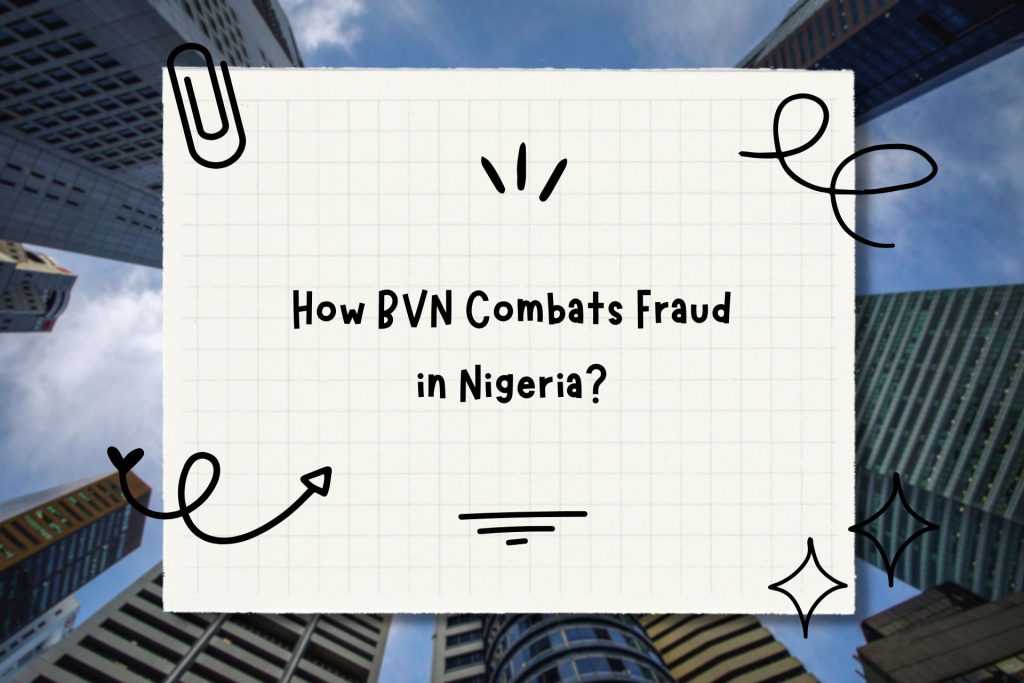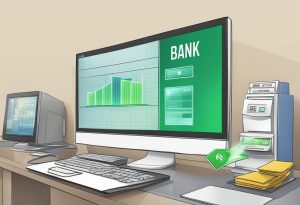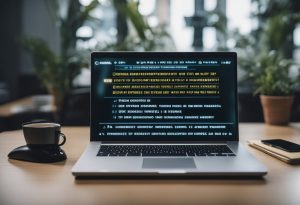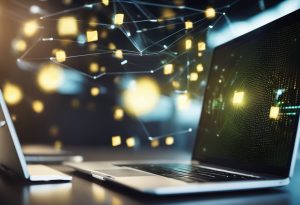If you are a Nigerian resident, you might have heard of the term “BVN” before.
BVN stands for Bank Verification Number, and it is a unique identification number that is assigned to every bank customer in Nigeria. This identification system was launched in 2014, and it has since become a crucial tool in combating fraud in the Nigerian banking sector.
With the rise of digital banking and online transactions, the risk of fraud has also increased. In the past, fraudsters could easily open multiple bank accounts using different names or identities, making it difficult for banks to track down fraudulent activities.
However, with the introduction of BVN, every bank customer is now required to have a unique identification number that is linked to their biometric data. This has made it much easier for banks to verify the identity of their customers and prevent fraudulent activities.
BVN has also helped to reduce the number of unclaimed funds in Nigerian banks. Before the introduction of BVN, many bank customers would open accounts and abandon them after a short period, leaving behind unclaimed funds.
With the introduction of BVN, banks can now link all accounts to a single identification number, making it easier to trace and recover unclaimed funds.
Purpose of BVN

The Bank Verification Number (BVN) is a biometric identification system introduced by the Central Bank of Nigeria (CBN) in 2014 to curb fraud in the Nigerian banking system. The BVN is a unique 11-digit number that is linked to an individual’s biometric data, including fingerprints and facial recognition, and is used to verify the identity of bank customers.
The primary purpose of the BVN is to reduce fraud and enhance security in the Nigerian banking system. By linking an individual’s biometric data to their bank account, the BVN helps to prevent identity theft, unauthorized access to bank accounts, and other fraudulent activities.
Implementation in Nigeria
The BVN system was implemented in Nigeria in 2014, and all bank customers were required to enroll for the BVN by providing their biometric data at designated registration centers. The registration process involves capturing the customer’s fingerprints, facial recognition, and other biometric data, which are then stored in a central database managed by the Nigeria Inter-Bank Settlement System (NIBSS).
Once a customer’s BVN is issued, it is linked to all their bank accounts across all Nigerian banks. This means that customers can use their BVN to access their accounts and perform transactions at any bank in Nigeria.
Since the introduction of the BVN system, there has been a significant reduction in fraudulent activities in the Nigerian banking system. The BVN has made it more difficult for fraudsters to impersonate bank customers and gain unauthorized access to their accounts, thereby improving the overall security of the banking system.
Combatting Fraud with BVN
BVN, which stands for Bank Verification Number, is a unique identification number that is assigned to every bank customer in Nigeria. BVN is a biometric-based system that captures the fingerprints and facial features of customers, making it possible for banks to verify their identities and track their financial transactions. BVN has become an important tool in the fight against fraud in Nigeria, helping to reduce identity theft and enhance bank security.
- Identity Theft Prevention
- Monitoring Financial Transactions
- Enhanced Bank Security
- Customer Protection
1. Identity Verification
One of the main ways that BVN combats fraud is by providing a reliable means of identity verification. With BVN, banks can verify the identity of their customers before opening accounts or carrying out transactions. This helps to prevent fraudsters from opening accounts in other people’s names and carrying out fraudulent transactions. The biometric nature of BVN also makes it difficult for fraudsters to impersonate other people or use fake identities to carry out fraudulent activities.
2. Tracking Financial Transactions
BVN also helps to track financial transactions and detect fraudulent activities. Every transaction carried out by a bank customer is linked to their BVN, making it possible for banks to track their financial activities and detect suspicious transactions. This helps to prevent money laundering, fraud, and other financial crimes. Banks can also use BVN to monitor the activities of their customers and identify unusual or suspicious patterns of behavior.
3. Reducing Identity Theft
Identity theft is a common form of fraud in Nigeria, and BVN has helped to reduce the incidence of this crime. With BVN, banks can verify the identity of their customers and ensure that only authorized persons have access to their accounts. This makes it difficult for fraudsters to steal other people’s identities and carry out fraudulent activities in their names. BVN also makes it possible for banks to detect and prevent identity theft by monitoring the activities of their customers and identifying suspicious transactions.
4. Enhancing Bank Security
BVN has also helped to enhance bank security in Nigeria. With BVN, banks can verify the identity of their customers and ensure that only authorized persons have access to their accounts. This helps to prevent unauthorized access to bank accounts and reduces the incidence of fraud. BVN also makes it possible for banks to monitor the activities of their customers and detect suspicious transactions, making it easier to prevent financial crimes and protect the interests of their customers.
In my opinion, BVN has emerged as a crucial weapon in the battle against fraud in Nigeria, playing a pivotal role in curbing identity theft, monitoring financial activities, and bolstering the security measures of banks. By persistently leveraging BVN, Nigerian banks can uphold their commitment to furnishing customers with a protected and secure banking landscape.






